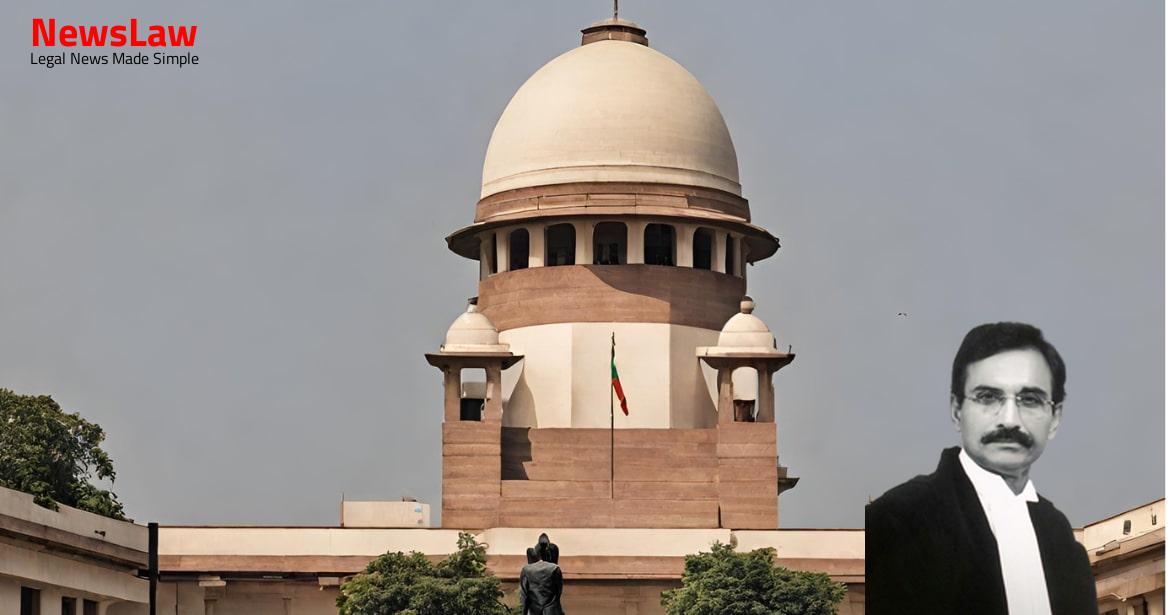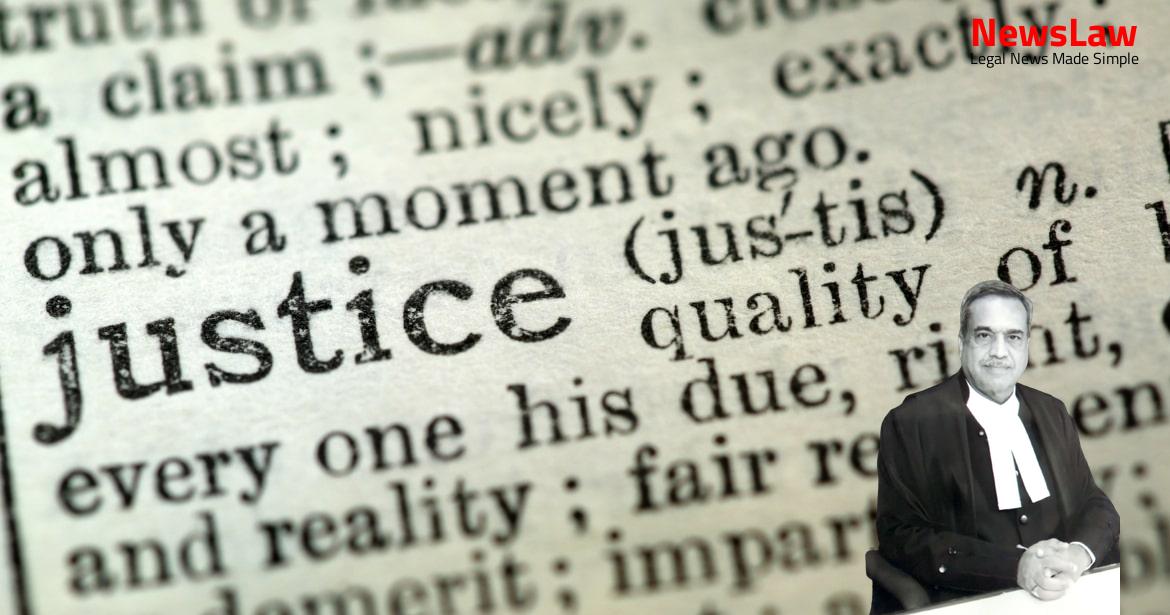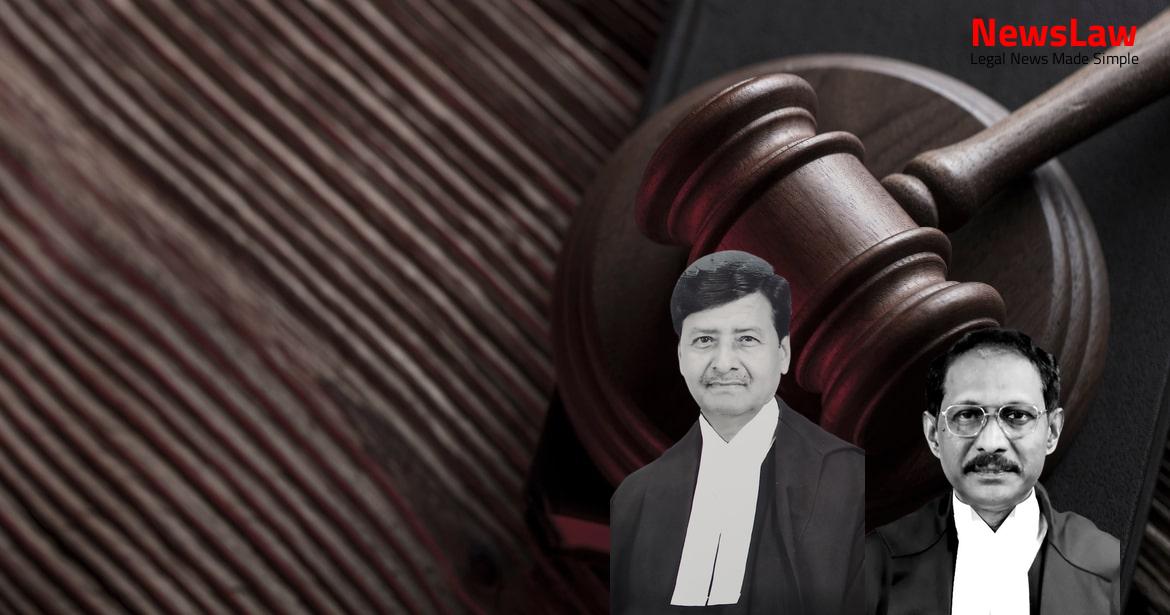Explore the intricate legal analysis conducted by the court regarding the introduction of entrance exam regulations for AYUSH courses. Delve into the nuances of the Indian Medicine Central Council Act and the application of NEET criteria, as the court examines the powers of the Central Council in making such regulations. Discover the arguments presented by various parties and the court’s interpretation of existing laws in the context of ensuring education standards in Indian medicine.
Facts
- Instructions were issued by the Ministry of AYUSH for admissions to AYUSH Under Graduate courses in the academic year 2018-2019 based on NEET merit lists.
- Introduction of NEET for admissions to AYUSH courses raised concerns about its legality under the Indian Medicine Central Council Act, 1970.
- The High Court dismissed Writ Petitions filed by Ayurvedic and Homeopathic colleges challenging the 2018 Regulations.
- Minimum eligibility marks for Under Graduate courses were set at 50 percentile for General category and 40 percentile for SC/ST/OBC candidates.
- An amendment in the form of Indian Medicine Central Council (Minimum Standards of Education in Indian Medicine) Amendment Regulations, 2018 was introduced.
- NEET entrance examination and percentile criteria were prescribed for admissions to Under Graduate courses as per the 2018 Regulations.
- Guru Ravidas Ayurved University issued a prospectus for admission to BAMS, BHMS, and BUMS courses.
- Minimum marks in NEET and criteria for admission were prescribed in the prospectus.
- An interim order by the High Court of Punjab and Haryana on 06.09.2019 allowed admission without insisting on the minimum NEET percentile.
- Writ petitions by AYUSH colleges were dismissed by the High Court citing the regulations dated 07.12.2018 were within the powers of the Central Council.
Also Read: Challenging Foreign Contribution Regulations: Legal Analysis
Issue
- The issue at hand is whether students seeking admissions to…
Also Read: Precedence of Secured Debt over Crown Debt: Legal Interpretation
Arguments
- The Writ Petitioners argued that the NEET examination was introduced for MBBS and BDS courses only after amending the relevant Acts.
- Admissions made for the academic year 2019-2020 without NEET eligibility were deemed unsustainable by the High Court.
- Institutions and students contended that the 2018 Regulations are ultra vires the Act, referencing amendments to related Acts before introducing entrance exams.
- It was argued that NEET is not suitable for AYUSH courses and the 2018 Regulations were hastily made without proper amendments empowering the Central Council.
- Ms. Anand stated that the 2018 Regulations are valid under the power conferred on the Central Council by Section 36 of the Act for maintaining education standards.
- The disputing parties raised concerns about the last date for admissions and a significant number of unfilled seats in Ayurvedic, Homeopathy, and Unani courses.
- Ms. Anand, representing the Central Council, argued that there is no specific power given to the Council to introduce an all India entrance examination under Section 36 of the Act.
Also Read: Analysis of Bank Charges in Loan Dispute
Analysis
- Section 36 (i), (j), and (k) of the Act cover the courses, period of study, practical training, examination subjects, standards of proficiency, staff, equipment, accommodation, and facilities for education in Indian Medicine, professional examinations, qualifications of examiners, and conditions of admissions to examinations.
- The Act allows the Central Council to make regulations with the previous sanction of the Central Government to carry out the purposes of the Act.
- Introduction of an all India examination is not covered by Section 36 (i), (j), and (k) of the Act.
- Only 28 candidates were found eligible in the second counselling held on 24.07.2019.
- 27 seats out of 28 were filled in the all India counselling held on 25.06.2019.
- 275 seats were filled based on interim orders from the High Court without insisting on NEET, applicable till 31 October, 2019.
- The order is not a precedent due to Section 36(p) in the Regulations.
- 320 out of 540 seats remained vacant after State counselling.
- Many institutions and students argued against imposing NEET qualifying marks to avoid vacancy in Undergraduate courses.
- A plea was made to allow already admitted students to continue to prevent them from losing a year.
- Continuation was permitted for students admitted prior to 15 October, 2019, as a one-time exercise due to peculiar circumstances.
- Prescribing a minimum percentile for common entrance exams was introduced by the Veterinary Council of India in 1993.
- Section 22 of the Veterinary Council of India Act is similar to Section 22 of the Indian Council of Medicine Act.
- The court is unable to decide on the issue raised by the Petitioners in Writ Petition (C) No.1461 of 2019.
- No response was filed by the Central Council of Homeopathy or the Union of India within the given time frame to clarify the factual position regarding non-compliance with the procedure prescribed under the 1973 Act for making Regulations.
Decision
- All Appeals and Writ Petitions are disposed of.
- The order permits students to continue their studies.
- The court does not need to address various submissions made by the Appellants due to the above order.
- Petitioners can raise the issues before the High Court if they find it necessary.
Case Title: UNION OF INDIA Vs. FEDERATION OF SELF FINANCED AYURVEDIC COLLEGES PUNJAB (2020 INSC 220)
Case Number: C.A. No.-000603-000603 / 2020



